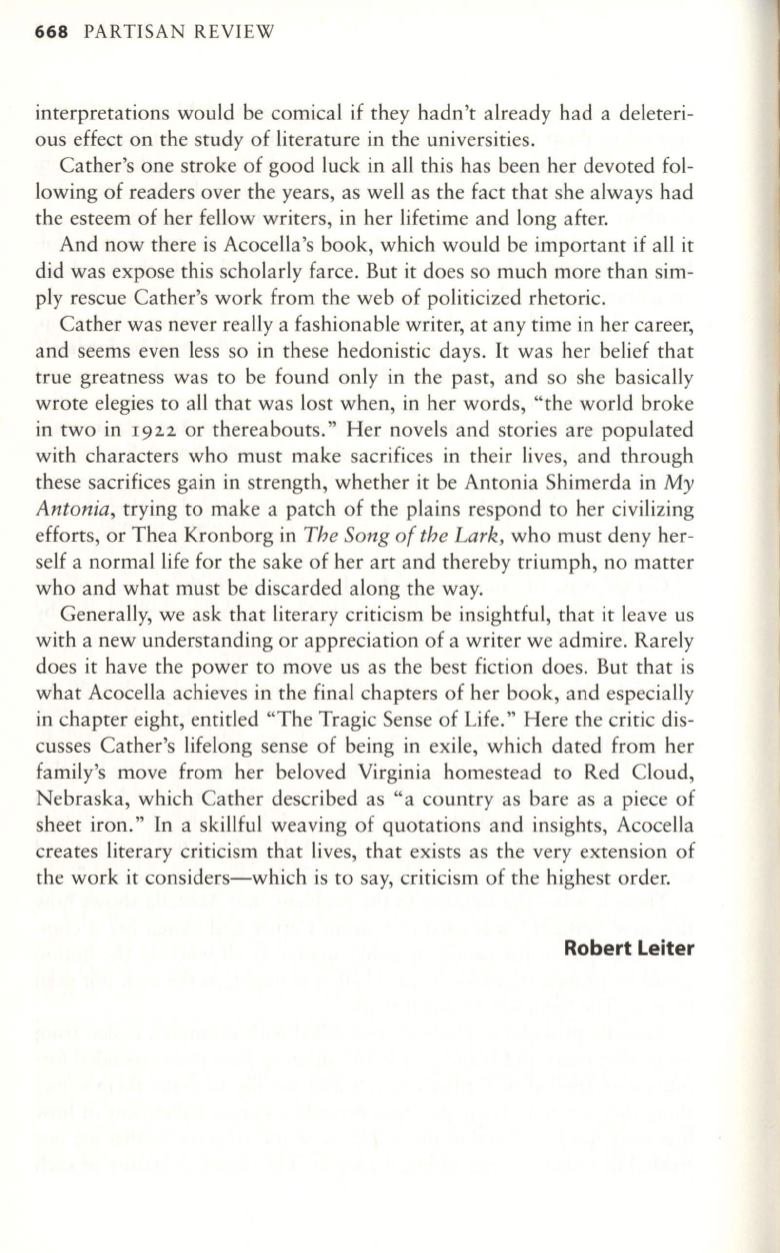
668
PARTISAN REVIEW
interpretations would be comical if they hadn't already had a deleteri–
ous effect on the study of literature in the universities.
Cather's one stroke of good luck in all this has been her devoted fol–
lowing of readers over the years, as well as the fact that she always had
the esteem of her fellow writers, in her lifetime and long after.
And now there is Acocella's book, which would be important if all it
did was expose this scholarly farce. But it does so much more than sim–
ply rescue Cather's work from the web of politicized rhetoric.
Cather was never really a fashionable writer, at any time in her career,
and seems even less so in these hedonistic days.
It
was her belief that
true greatness was
to
be found only in the past, and so she basically
wrote elegies
to
all that was lost when, in her words, "the world broke
in two in
1922
or thereabouts." Her novels and stories are populated
with characters who must make sacrifices in their lives, and through
these sacrifices gain in strength, whether it be Antonia Shimerda in
My
Antonia,
trying
to
make a patch of the plains respond to her civilizing
efforts, or Thea Kronborg in
The Song of the Lark,
who must deny her–
self a normal life for the sake of her art and thereby triumph, no matter
who and what must be discarded along the way.
Generally, we ask that literary criticism be insightful, that it leave us
with a new understanding or appreciation of a writer we admire. Rarely
does it have the power to move us as the best fiction does. But that is
what Acocella achieves in the final chapters of her book, and especially
in chapter eight, entitled "The Tragic Sense of Life." Here the critic dis–
cusses Cather's lifelong sense of being in exile, which dated from her
family's move from her beloved Virginia homestead to Red Cloud,
Nebraska, which Cather described as "a country as bare as a piece of
sheet iron."
In
a skillful weaving of quotations and insights, Acocella
creates literary criticism that lives, that exists as the very extension of
the work it considers-which is to say, criticism of the highest order.
Robert Leiter


